With Christmas just around the corner, it’s time for families and friends to gather together and enjoy all of the merriment of the season. From festive feasts to late nights and an abundance of sweet treats on offer, it might be the season of goodwill and jollity but it can also play havoc with your oral health. If you want to look after your teeth, mouth and gums this December but still enjoy yourself, please take note of our dental tips for Christmas.
Enjoy sweet treats in moderation
Whilst we are not saying you need to avoid sweet treats entirely - after all it wouldn’t be Christmas without a mince pie or two or a tin of Quality Street to treat yourself to after dinner - it pays to exercise a little caution. There are ways that you can enjoy all of the special treats the holiday season has to offer without them causing problems for your teeth. We recommend that you follow these dental tips:
- Indulge in sweet treats during meal times instead of continuously snacking. This limits the time your teeth are exposed to sugars and acids, reducing the risk of decay.
- Avoid overly hard or sticky sweets that can potentially damage your teeth or braces. Opt for teeth-friendly alternatives when possible.
- Consider the other festive alternatives. For example, if you're feeling the urge for a sweet treat, consider swapping it for cheese. Cheese helps neutralise the acids in your mouth, making it a tooth-friendly option.
- Brush your teeth or rinse your mouth after eating sweets to avoid prolonged sugar contact with your teeth. However, wait for about 30 minutes to an hour after eating sweets before brushing to prevent further acid erosion.
Learn how to manage large meals
Typically, Christmas involves lengthy sit-down meals and prolonged eating, which can be both good and bad for your teeth, mouth and gums, depending on the circumstances. Here's why:
The Good: When you eat a large meal, your saliva production increases. Saliva is crucial for maintaining oral health as it washes away food particles and reduces the effects of acids, which can lead to tooth decay.
The Bad: If your meal is high in sugar or acid, a larger meal means more exposure for your teeth, which can lead to dental issues like cavities or erosion. Additionally, grazing or eating over an extended period can keep your mouth's pH low, which is harmful for teeth as it promotes cavity formation.
To help prevent larger meals from disruption your dental health this Christmas here is some guidance to follow:
- Try to confine your eating to specific mealtimes, rather than snacking or grazing throughout the day. This gives your mouth time to neutralise the acids and carry out repair processes.
- Take breaks after each course. This will not only allow your stomach to digest but also give your mouth a chance to produce saliva and wash away any leftover food particles.
- Drink water regularly during your meal to help rinse away food particles and neutralise acid. This is particularly beneficial after consuming something sweet or acidic.
- Be mindful of your choices and try to balance out sugary or high-carb foods with high-protein foods and fibrous vegetables, which can help to neutralise acids and stimulate saliva production.
- Don't rush to brush. Although it might be tempting to brush your teeth immediately after eating, it's best to wait at least 30 minutes. Brushing immediately after a meal can spread around the acid, especially if you've consumed something acidic.
- Chew sugar-free gum after your meal to help stimulate saliva production and neutralise acids and remove food particles from your teeth.
Remember, the goal is not to avoid these holiday treats entirely but to enjoy them in moderation and with mindfulness towards your oral health.
Don’t let late nights disrupt your oral health routine
One of the greatest things about Christmas as a child is staying up late. Whether it’s waiting for Father Christmas, or spending time with extended family and friends, being able to stay up past your bedtime is priceless at a young age. For adults, however, these late nights often mean disruption to the family routine, which can include proper tooth brushing and taking care of any oral appliances such as braces and retainers. To help you and your family keep your oral health routine on track this Christmas, here are a few simple dental tips to follow:
- Stick to regular brushing and flossing - even with the shift in your routine, ensure to maintain your regular oral hygiene habits. Brush twice a day and floss at least once.
- Avoid midnight snacks - late-night snacking, especially on sugary foods or drinks, can increase the risk of tooth decay. Try to limit snacks and if you do need to eat, opt for teeth-friendly snacks such as cheese.
- Don't skip dental appliances care - if you or your children have braces, retainers, or other dental appliances, don't neglect their care. Clean them as recommended by your dentist.
- Chew sugar-free gum: if brushing isn't possible after a late-night snack, chew sugar-free gum. It stimulates saliva production, which helps in neutralising acids and cleaning teeth.
If you are at all worried about the toll the festive season might take on your oral health why not schedule a post holiday dental check up now? Call us today on 020 8646 6200 or click here to book an appointment for January so we can ensure any potential dental health issues are identified and addressed early.
We wish you and your family all the best for the festive season 🎄🎁






